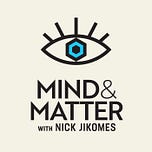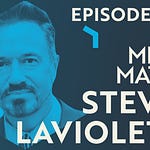Short Summary: Cancer’s metabolic roots with Dr. Thomas Seyfried.
About the guest: Thomas Seyfried, PhD is a professor of biology at Boston College. He has researched cancer metabolism, epilepsy, and lipid biochemistry for over 40 years.
Note: Podcast episodes are fully available to paid subscribers on the M&M Substack and everyone on YouTube. Partial versions are available elsewhere. Transcript and other information on Substack.
Episode Summary: Dr. Thomas Seyfried discusses the mitochondrial metabolic theory of cancer, challenging the dominant somatic mutation theory. He explores how cancer cells rely on fermentation due to defective oxidative phosphorylation, drawing on Otto Warburg’s work. Seyfried explains how ketogenic diets and nutritional ketosis can starve cancer cells by limiting glucose and glutamine, while sharing evidence from nuclear transfer experiments and clinical studies. The conversation also covers environmental factors driving cancer and the importance of metabolic flexibility for prevention.
Key Takeaways:
Cancer is characterized by dysregulated cell growth, but Seyfried argues it stems from mitochondrial dysfunction, not just genetic mutations.
Cancer cells ferment glucose & glutamine, unable to use fatty acids or ketones, making ketogenic diets a potential therapeutic tool.
Nuclear transfer experiments show cancer traits reside in the cytoplasm, not the nucleus, challenging the somatic mutation theory.
Environmental factors like processed foods, stress, and poor sleep disrupt mitochondrial function, increasing cancer risk.
Seyfried’s glucose-ketone index helps monitor metabolic states to manage cancer & chronic diseases.
Cancer rates are rising in younger people, possibly due to obesity, inflammation, and environmental toxins.
Metabolic flexibility, cycling between ketosis and carb-based states, may mimic ancestral patterns and reduce chronic disease risk.
Related episode:
M&M #215: Cancer Metabolism: Sugar, Fructose, Lipids & Fasting | Gary Patti
*Not medical advice.
Support M&M if you find value in this content.
Episode transcript below.
Episode Chapters:
00:00:00 Intro
00:02:57 Cancer Basics
00:07:41 Genetic Theory of Cancer
00:10:38 Ketogenic Diet Insights
00:13:42 Warburg’s Hypothesis
00:20:19 Biochemical Debates
00:24:08 Molecular Biology Era
00:30:07 Genetic Theory Flaws
00:36:41 Nuclear Transfer Evidence
00:41:59 Metabolic Theory Overview
00:48:31 Fermentation in Cancer
00:56:00 Mitochondrial Coupling Explained
01:02:05 Mitochondrial Haplotypes
01:09:56 Ketogenic Diet for Cancer
01:15:22 Ketones vs. Glucose Efficiency
01:21:10 Metabolic Flexibility
01:24:55 Causes of Mitochondrial Damage
01:29:27 Light and Mitochondrial Health
01:33:13 Ketogenic Diet Composition
01:39:40 Cancer Trends
01:44:32 Cancer Prevention Tips
01:46:17 Closing Remarks
Full AI-generated transcript below. Beware of typos & mistranslations!
Listen to this episode with a 7-day free trial
Subscribe to Mind & Matter to listen to this post and get 7 days of free access to the full post archives.
















